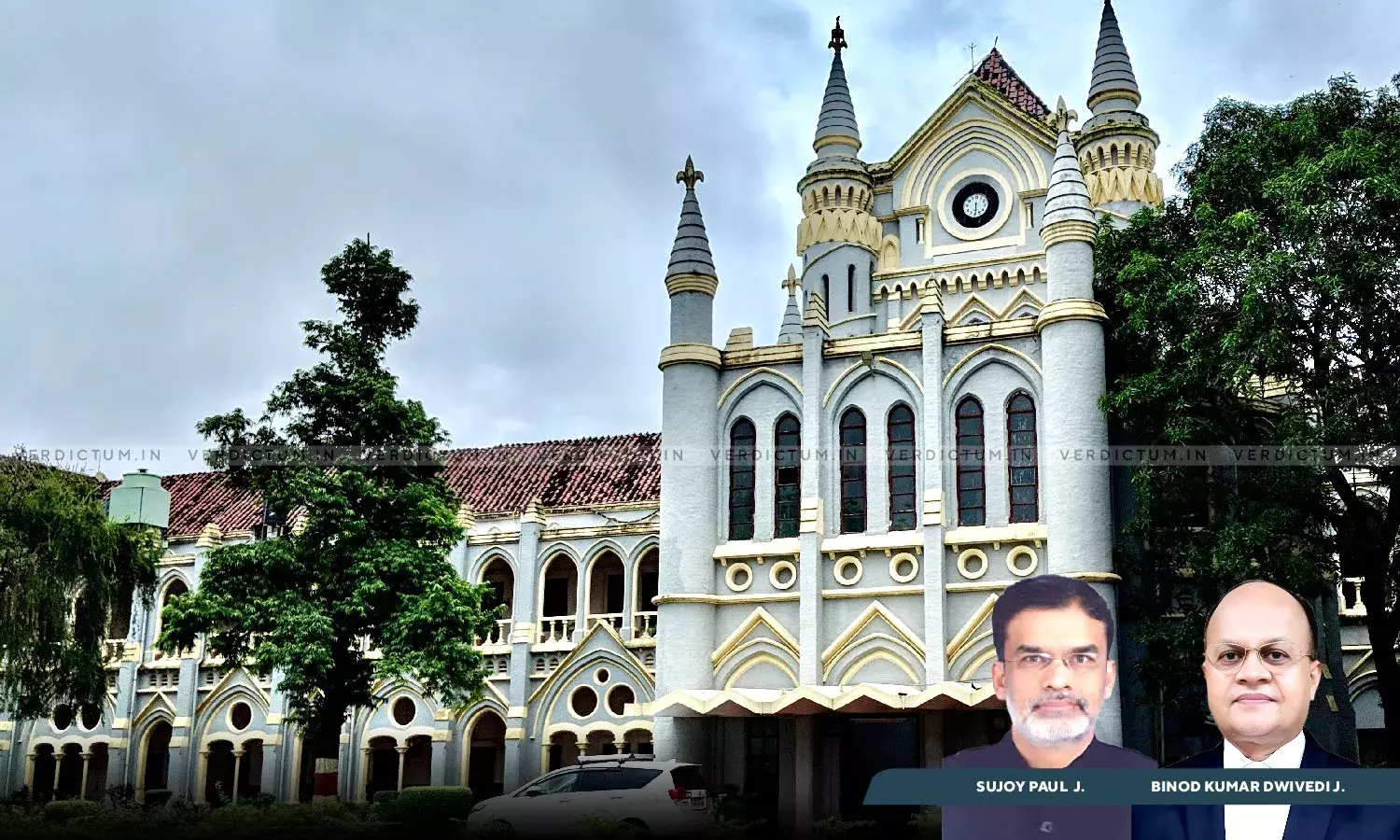Imposition Of Capital Punishment Deserves Microscopic Scrutiny: Madhya Pradesh HC Alters Death Sentence To Life Imprisonment In Murder Case

The Madhya Pradesh High Court altered the death sentence of three men to life imprisonment in a murder case saying that the imposition of capital punishment deserves microscopic scrutiny.
The Jabalpur Bench of the High Court was dealing with a batch of criminal appeals filed against the judgment by which the aforesaid men were held guilty for committing offences under Section 302 of the Indian Penal Code (IPC).
A Division Bench comprising Justice Sujoy Paul and Justice Binod Kumar Dwivedi held, “The Court below has imposed capital punishment to appellants for murdering two persons. The question of imposition of appropriate punishment is a vexed question. This question bothered the human being from time immemorial. … The imposition of capital punishment deserves microscopic scrutiny. The aggravating and mitigating circumstances are required to be examined. Apart from this, the Apex Court has laid down ‘Crime Test’, ‘Criminal Test’ and ‘R-R test’. This Court considered this aspect in sufficient detail in ILR 2023 MP 353 (In Reference Vs. Ramnath Kewat).”
The Bench referred to an old scripture in which it was recorded as: Let the king inflict punishments upon the guilty (i) corresponding to the nature (gravity) of the offence, (ii) according to justice and (iii) not pardon anyone who has committed the offence for the second time.
Senior Advocate Manish Datt represented the appellants/convicts while Government Advocate S.K. Kashyap represented the respondent/State.
Facts of the Case -
The starting point of the case was lodging of Dehati Nalishi by a person wherein he stated that in 2021, when was taking dinner, the main gate of his house was locked by him. He heard certain cries and found that by jumping his boundary wall, the convicts entered the premises and started abusing him and his wife. One of the convicts caused injuries to him by means of lathi and when his wife tried to interfere, another convict caused injury by means of knife on several parts of her body. His child was assaulted by knife and he tried to chase them. Outside his house, he came to know that the convicts caused injuries by means of knife to another couple.
The convicts were arrested and, in the custody, their memorandum statements were recorded and lathi and knives allegedly used in assault were recovered from them. Accordingly, offence under Section 25 of the Arms Act, 1959 was added. After completion of investigation, the challan was filed before the Judicial Magistrate First Class (JMFC) Jabalpur and the said Court committed the matter to the Sessions Court. The convicts abjured the guilt and pleaded innocence. The Court below framed six questions for its determination, recorded statements of 26 prosecution witnesses but no defence witness was examined. After hearing the parties, the Court awarded death sentence to the convicts and hence, they were before the High Court.
The High Court after hearing the arguments from both sides observed, “We have carefully gone through the ocular, medical and documentary evidence and we are satisfied that Court below has appreciated the evidence on the anvil of Evidence Act. … In view of oral dying declaration (Ex.P/46) of deceased Neelam given to Manjula (PW-7) and Chhotu (PW-14) it is established beyond reasonable doubt that appellants have assaulted Neelam and her husband by means of lathis and knife because of which both of them died. We have already recorded that there was no cross-examination on the aspect of oral dying declarations. Apart from this, Golu (PW-1) and Ruchi (PW- 8) clearly deposed about the overt act of all the appellants.”
The Court noted that the prosecution could not demolish their statements during cross-examination and that the corresponding injuries and medical evidence supports the case of prosecution.
“Shri Manish Datt, learned Senior Counsel during the course of hearing expressed his dissatisfaction and anguish in the manner trial cases are accepted by Advocates having no expertise in the field. He even made a request that High Court may frame some Rules in this regard. We are afraid, this is not within the province of this Court. It is for the Bar Council and Bar Associations to persuade their members to introspect so that prevailing situation and ineffective representation of litigants (if any) can be checked. … The Bar Council and the law makers are best suited to introduce provisions in this regard”, said the Court.
The Court further noted the following mitigating circumstances relating to the appellants:
(i) It is not established that they had any criminal record of conviction.
(ii) They are aged about 35, 24 and 23 years respectively.
(iii) The accused persons belong to lower strata/middle class of the society.
(iv) There is no evidence to show that accused persons in future would commit any offence creating alarm for the society.
(v) It cannot be said that there is no possibility of their reformation or rehabilitation.
(vi) The crime was not committed to terrorize or harm a particular or large section of society.
(vii) No special reason exists to impose capital punishment.
The Court also took note of the following aggravating circumstances:
(i) Appellants assaulted two families one by one for no justifiable reason.
(ii) They brutally assaulted Pushpraj @ Vijay and his wife Neelam
(iii) The hurt caused to Golu, his wife is serious/grievous in nature.
(iv) The offence was committed after due deliberation.
(v) The accused persons had not shown any repentance after committing the offence.
Accordingly, the High Court partly allowed the appeals, affirmed the conviction of the appellants, and altered the sentence from death sentence to life imprisonment with a fine of Rs. 50,000/- on each.
Cause Title- Ravi Kushwaha & Anr. v. State of Madhya Pradesh


